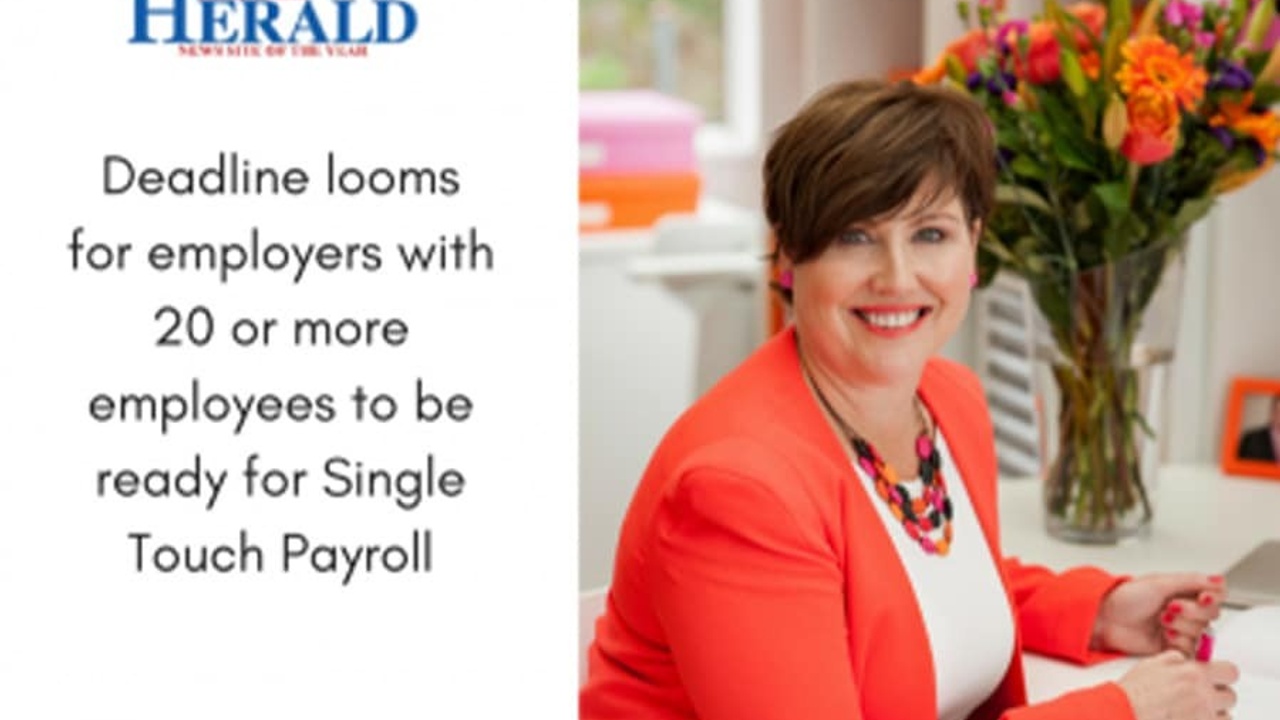Deadline looms for employers with 20 or more employees to be ready for Single Tax Payroll

How did you get into accounting?
I had my sights set on two careers – an accountant or fashion designer/textiles and design teacher. To many, these would appear worlds apart, but both would capitalise on my strengths in maths, problem solving and creativity.
You ran your firm Gascoigne Consulting (now merged and known as Anova Chartered Accountants) and then decided to coach accounting firms. In what areas?
Nearly 19 years since starting my practice, I am pivoting to work with small and solo accounting firms. Through my coaching programs, I share my strategies for growing a successful and profitable practice whilst enjoying a work/life balance. Sadly, many accountants have been so busy helping their clients’ grow their businesses and their bottom lines, they haven’t had the time to focus on their own business. I help them rediscover their vision and passion and together we set about making sustainable changes so they have a better practice and a better life.
You are the sole tax practitioner on the Australian Tax Office’s Single Touch Payroll (STP) Readiness Working Group. Why were you chosen?
I’m a chartered accountant and answered an expression of interest to members. The ATO were looking for a broad cross-section from accounting, payroll software, professional bodies and employers to bring a different lens, expertise and perspective to the project. I had always enjoyed an excellent relationship with the ATO and I was influencing and empowering SMEs and accountants through my blogging and MYOB author. I have no doubt these factors assisted with my selection.
What is STP?
Single Touch Payroll is a new way that employers will report details of their employees’ wages, PAYG tax and superannuation to the ATO via their payroll software each time a payroll event takes place.
Does every type of business with 20 or more employees have to adopt it?
Yes and they will need to get ready for STP by July 1, 2018. An employer may be able to apply for a later start date if they won’t be ready in time. Some payroll software providers also have deferrals in place for their software products, and employers who were existing users of these products will be covered by those deferrals. Some employers also employ casual workers during peak periods but don’t have 20 or more employees for the rest of the year. They might also be eligible for an exemption.
What about employers with 19 or less staff?
STP may be extended to these employers from July 1, 2019, subject to the passing of legislation. However, these employees can choose to start reporting through STP earlier such as when their payroll software is updated for STP reporting.
What is the timeframe to start STP reporting?
Employers need to start reporting from 1 July 2018 unless they have a deferral or exemption in place. They can talk to their tax practitioner or payroll software provider for advice.
What if a business fails to meet the deadline?
The ATO has indicated that no penalties will be issued in the first year to employers who make mistakes when lodging their payroll information through STP. Such leniency does not however apply to employers who ignore their STP obligations.
How can companies with 20-plus employees begin to prepare?
They should be talking to their payroll software provider, bookkeepers and accountants to see if their software will be ready. It’s a great opportunity to improve, automate and streamline their payroll processes.
Where can they get help?
The ATO have some great STP resources on their website to assist employers and their staff understand their STP obligations. Accountants, bookkeepers, payroll software providers and industry bodies can also help and I have a number of resources on my website.
What are the main benefits of STP?
It will streamline and modernise business processes and will create a more level playing field for all businesses. Businesses gaining an unfair advantage by not meeting their employee obligations will be easily detected by the ATO with real-time information from employers and superannuation funds.
Businesses gaining an unfair advantage by not meeting their employee obligations will be easily detected by the ATO with real-time information from employers and superannuation funds.
Amanda Gascoigne
Small businesses may struggle to find the time to comply. Can anyone assist them?
Many businesses and accountants have been sticking with outdated and time consuming processes when it comes to their bookkeeping and accounting, yet in all other areas of their business and life they are embracing technology. STP can be the impetus for much needed change that will see businesses reaping the benefits including access to more up to date financial data to help them make better business decisions.


